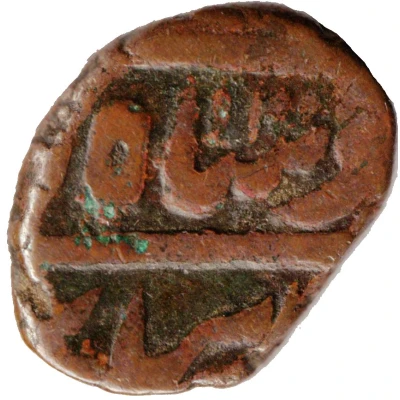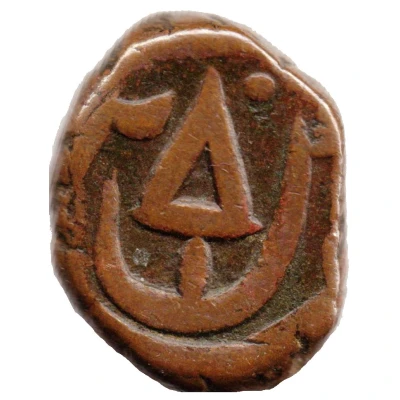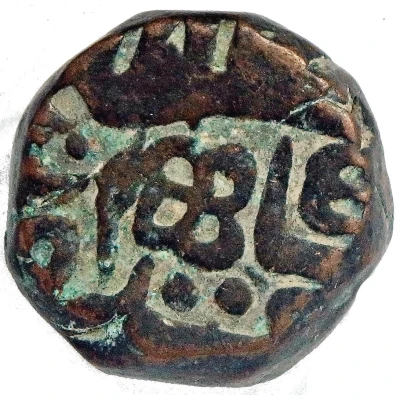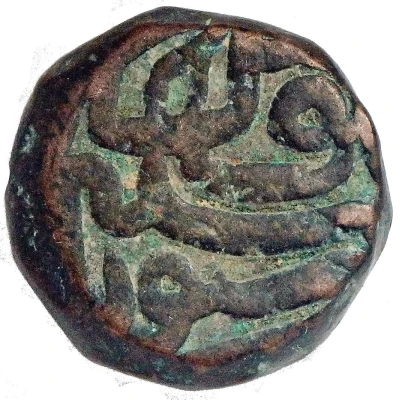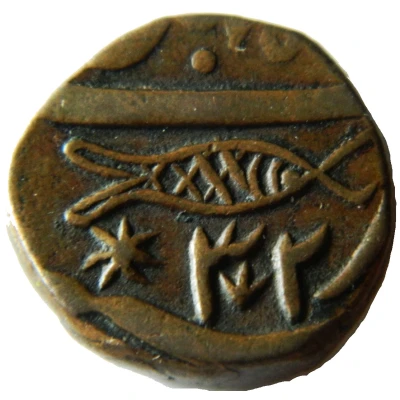
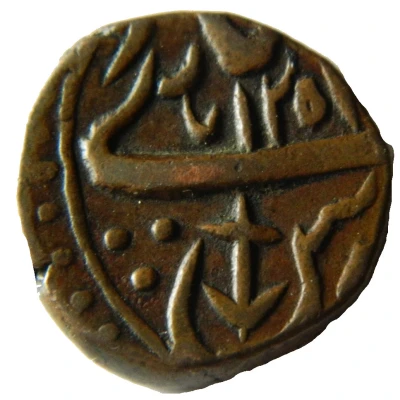

Obverse © Noël
1 Paisa - Shah Alam II
1251 (1836) year| Copper | 6.5 g | 20 mm |
| Issuer | Mughal Empire (India) |
|---|---|
| Emperor | Shah Alam II (1760-1788; 1788-1806) |
| Type | Standard circulation coin |
| Year | 1251 (1836) |
| Calendar | Islamic (Hijri) |
| Value | 1 Paisa (1⁄64) |
| Currency | Rupee (1540-1842) |
| Composition | Copper |
| Weight | 6.5 g |
| Diameter | 20 mm |
| Shape | Round (irregular) |
| Orientation | Coin alignment ↑↓ |
| Demonetized | Yes |
| Updated | 2024-10-05 |
| Numista | N#71000 |
|---|---|
| Rarity index | 93% |
Reverse
Anchor with rev date seen on top
Lettering: ۱۲۵۱
Edge
Plain
Comment
Unlisted in KMDescription by Jan Lingen: The so-called 'fish-paisa's' are produced in places along the major rivers in the north of India, viz.: the Yamuna and the Ganges. Some fish-paisas bear the mintname Shahjahan(abad). Delhi was known as Shahjahanabad, but the fish-paisas were not the product of the mint at the capital.
More Details: http://www.worldofcoins.eu/forum/index.php?topic=16271.0
Interesting fact
One interesting fact about the 1 Paisa - Shah Alam II 1251 (1836) coin from the Mughal Empire (India) is that it was made of copper, which was a common material used for coinage during that time period. Copper was chosen for its durability and affordability, as it was a relatively inexpensive metal compared to other options like gold or silver. Despite being made of a less valuable metal, the coin still held significant value and was widely used in trade and commerce throughout the empire.
